The Art of Forgiveness
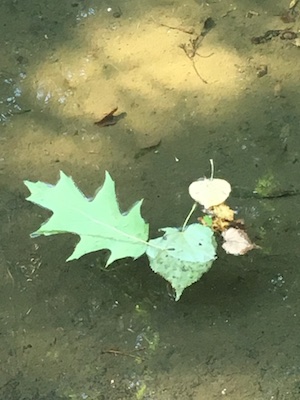 Any reparations course of love and forgiveness includes asking oneself: How can I have done things better today? How did I use my words today? How did I direct my heart? Where was I kind? Where was I not? And where I felt I was kind, where could I have even been kinder and done better? Let us affirm that forgiveness is a process. That it is a process doesn’t disempower us away from our best selves. On the contrary. It refines us to a better power of loving and being.
Any reparations course of love and forgiveness includes asking oneself: How can I have done things better today? How did I use my words today? How did I direct my heart? Where was I kind? Where was I not? And where I felt I was kind, where could I have even been kinder and done better? Let us affirm that forgiveness is a process. That it is a process doesn’t disempower us away from our best selves. On the contrary. It refines us to a better power of loving and being.
I bring up and share the Jewish tradition of teshuvah with my readers because it is rather genius as a technology of honest accountability when applied and because it is a truly wise step-by-step recipe for self-improvement and honest repair. The action of repair goes hand in hand with Yom Kippur, also called the Day of Atonement. It is a reflective day, usually accompanied by a fasting period from sundown to sundown. This “holy day” invites you to ask your Maker to absolve you of areas in your life where you did not take the advice for living an ethical and quality life seriously. During this time, people make a self-accounting or a teshuvah, an ancient Hebraic word that means “a returning”. And yet even the Jewish tradition understands that of those hurts that men have created between each other only men can repair themselves. This is to say that what we do in error and to each other is our responsibility to repair and to correct between each other. Or said, another way, it is our own work to do.
 The process of teshuvah, you see, recognizes that repairs between people, if approached honestly and sincerely, cannot be accomplished in one ‘fast’ day. It cannot even be resolved by prayer alone. Often, many a worshipper errs in thinking that Yom Kippur is a free day that gets them off the hook. The truth is it requires our personal action of a sincere change. We are asked to fast more vitally as a mechanism to become closer to the heart of our inner selves and to become renewed to make better choices in the year to come.
The process of teshuvah, you see, recognizes that repairs between people, if approached honestly and sincerely, cannot be accomplished in one ‘fast’ day. It cannot even be resolved by prayer alone. Often, many a worshipper errs in thinking that Yom Kippur is a free day that gets them off the hook. The truth is it requires our personal action of a sincere change. We are asked to fast more vitally as a mechanism to become closer to the heart of our inner selves and to become renewed to make better choices in the year to come.
To be at one with ourselves, we need to work on understanding what pushes our buttons and where we need to improve— but even Judaism understands this is a discipline we need to take on for ourselves each day of our lives of every year. That means this action is up to us. That means this action is both yours and mine. And that is why we each must ask ourselves how to appease relations.
So what would teshuvah, or this improvement recipe for a greater kindness, look like?
 Teshuvah is not just saying, I’m sorry to a person or aloud in your heart, though this is a great start. That is actually not it at all. Rather, it requires follow through for clear repair: the person to then commit to working on that behavioural error and correcting it so it doesn’t pervade and infect other vital relationships, too.
Teshuvah is not just saying, I’m sorry to a person or aloud in your heart, though this is a great start. That is actually not it at all. Rather, it requires follow through for clear repair: the person to then commit to working on that behavioural error and correcting it so it doesn’t pervade and infect other vital relationships, too.
So, if for example you are one to lose your cool or get annoyed easily with a particular someone, this means looking beyond the relationships that are important to you and that may now include how you relate with the gas attendant, a cashier, a utility rep, someone slow to answer or who demands more of your time, the person who pushed in line, the driver who cut you off, you know what I mean when it comes to this example.
Next, you make a plan. Perhaps a certain topic isn’t wise to bring up for the sake of peace. You do that. You succeed. Yet your work is still not over. It may be sometime later when something of a sensitive subject triggers you and yet you hold your tongue and you aren’t pulled into the argument; and here, you have achieved teshuvah.
Later, when you are in the same position and the same situation comes up in other scenarios with other people and you don’t lose your cool, you know you have achieved progress. From here, at every time you return to such situations, you get stronger and you improve. Finally, you will likely continue to make mistakes in this area but the hope is that they will be less frequent and made more quickly accountable so that the peace we all seek in our hearts can be achieved.
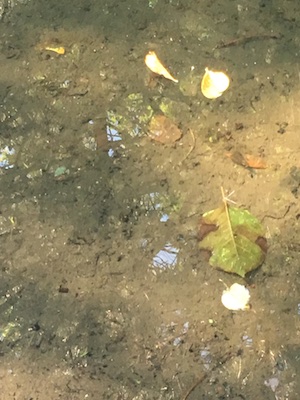 In many cases of relatedness, one side or both may be the offender and the offended to a situation. So what do we do? For a true returning, it actually requires the one who has caused hurt to have gone through some important steps first to get there. Repairs can only be successful from a going in, or an internal self-evaluation of our deepest human behaviours, over going out, that is looking for an external component to be the cause.
In many cases of relatedness, one side or both may be the offender and the offended to a situation. So what do we do? For a true returning, it actually requires the one who has caused hurt to have gone through some important steps first to get there. Repairs can only be successful from a going in, or an internal self-evaluation of our deepest human behaviours, over going out, that is looking for an external component to be the cause.
So the first step of teshuvah is in admitting to yourself that you can do wrong, that you do do wrong, and that you are willing to look at ways to structure and approach some area of your life differently. Many people find this hard to do. A good strategy would be to not forget that we all offend and harm other people and that this truth then includes you.
A second key step of teshuvah is understanding. When we truly understand we are literally standing under in humility to all around us that has been created for us and that is divine. When we understand in this way, we are more apt to recognize that what you and I fail to correct takes away from the repairing of the world.
Such “under-standing” equips us to feel remorse and regret, also, over what you or I did not do better. Having qualms about one’s own conduct can be a good thing. It fires the heart with a determination to approach things differently and be resolved to make a humble effort for better things. I say humble because in exercises of a true sincerity, the ego and any knee-jerk attachments to one’s protective sheath of arrogance and self-importance has to be parked at the door.
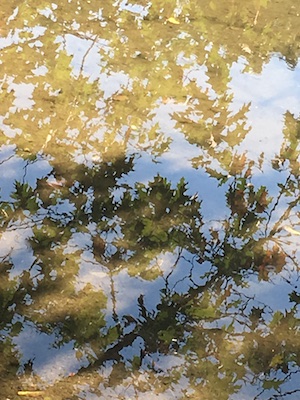 A sincere process then requires a review of one’s year, one’s actions, one’s thoughts, one’s behaviour, one’s speech. A person is asked to honestly evaluate where he or she can improve. Where have we not behaved mindfully and instead unconsciously? Where have we unintentionally hurt? And where have we created inelegant hurts even though we only meant well? From here, an apology is delivered to the person one has hurt, ideally without defensiveness or half-words or in a way that minimizes how the action, however major or minor in one’s own eyes, may have been experienced for the other. So teshuvah imports the necessity of looking outside yourself and caring. It is actually why the process of apology is so vital for being human. Apologies are only put there for us to have show that we care.
A sincere process then requires a review of one’s year, one’s actions, one’s thoughts, one’s behaviour, one’s speech. A person is asked to honestly evaluate where he or she can improve. Where have we not behaved mindfully and instead unconsciously? Where have we unintentionally hurt? And where have we created inelegant hurts even though we only meant well? From here, an apology is delivered to the person one has hurt, ideally without defensiveness or half-words or in a way that minimizes how the action, however major or minor in one’s own eyes, may have been experienced for the other. So teshuvah imports the necessity of looking outside yourself and caring. It is actually why the process of apology is so vital for being human. Apologies are only put there for us to have show that we care.
Soon, we come to recognize that there aren’t really a lot of bad people in the world but more that it’s that lots of people are just mistaken in how they go about things, and isn’t it wonderful that we all have a chance to do better. As Leonard Cohen would often point out in his songs and in his poems, we all have murder in our hearts and at the same time we each have an incalculable measure to find powers of love. When we stray from our better essence, we need see how this impacts deeper patterns of relatedness. We also need strive to work to unlock the motivations behind the darker and less conscious parts of our being for the sake of a larger peace and to also show each other that we care.
 Having the humility to know we err and that we are put here to do better goes hand in hand with an awareness of trying to see how a certain action that produces a negativity not be perpetually created again and again. It is all-important we each take a look. In actuality, the arrogance of assumption that only you do not err as much as to know you have flaws and to refuse to take a look is actually one of the unkindest things we can do to each other. To not repair or not improve or to put the responsibility of your flaws upon others is truly unkind because we then burden each other with what is our work to do. Avoidance of someone or a situation that is upsetting, by the way, I have learned, is usually not the best final answer. Avoidance keeps old wounds still there. Precious time for a better way also gets lost. For a while, you may want to avoid certain touchy subjects with someone until you feel you can manage things better within yourself by practicing better skills with other people first.
Having the humility to know we err and that we are put here to do better goes hand in hand with an awareness of trying to see how a certain action that produces a negativity not be perpetually created again and again. It is all-important we each take a look. In actuality, the arrogance of assumption that only you do not err as much as to know you have flaws and to refuse to take a look is actually one of the unkindest things we can do to each other. To not repair or not improve or to put the responsibility of your flaws upon others is truly unkind because we then burden each other with what is our work to do. Avoidance of someone or a situation that is upsetting, by the way, I have learned, is usually not the best final answer. Avoidance keeps old wounds still there. Precious time for a better way also gets lost. For a while, you may want to avoid certain touchy subjects with someone until you feel you can manage things better within yourself by practicing better skills with other people first.
We each know instances in our lives, too, where someone will make excuses for a behaviour and say that is just his or her way but that ongoing parameter is also not okay. If things stay that way a trillion fold, we will not achieve peace in this world. And in this growing mindful world we are finding ourselves in, it is really important to not distort what is ours and to ask instead how mindful we really are. It is one thing to excuse someone inured so you can move on with your own life and it is quite another that such things without correction be upon the hearts or the responsibility of others. We help things become kinder when we stay responsible and more vigilant not just to what we do but to how we do things with others and how we go about it.
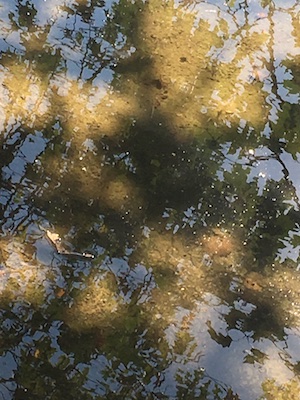 Ideally, our openness to this returning is not reserved for one day alone. The goal is that every person stays mindful of what he or she can improve upon each and every day. And in case you get off track, just in case you have forgotten how vitally important a thread you are to everyone else, because after all we are all in this together, here is a recipe to put you back on track and to invite your mindset to reset to a stronger kindness for the better good of all. The Day of Atonement, or at-One-ment, serves this vital individual and collective purpose. And then because of course, just like you review your taxes and your spending, it is fiscally (and physically!) wise to review your accounting of the self at least globally once each year.
Ideally, our openness to this returning is not reserved for one day alone. The goal is that every person stays mindful of what he or she can improve upon each and every day. And in case you get off track, just in case you have forgotten how vitally important a thread you are to everyone else, because after all we are all in this together, here is a recipe to put you back on track and to invite your mindset to reset to a stronger kindness for the better good of all. The Day of Atonement, or at-One-ment, serves this vital individual and collective purpose. And then because of course, just like you review your taxes and your spending, it is fiscally (and physically!) wise to review your accounting of the self at least globally once each year.
For some this state of returning means one year or many years of working on better calm, for some on committing to not gossip, for some to being more fully present to others they care about. For some it is keeping their word and staying consistently disciplined, for others being watchful and caring of how they use their words. For some it is learning how to throw away their ego at the door to things, for others not reflexively blaming others, for others finding ways to seek solutions over finding problems that further dissension, for others it is learning how to be more tolerant. Indeed, the areas we can correct and remedy in our lives are quite endless in refinement. That is why a wise person will apologize where he can, if not to himself, and commit to correcting at least one area of his behaviour that he’d like to improve upon and refine throughout the coming year. The next year he will seek to improve on another character trait. For the Jewish tradition recognizes that to apologize to another and not refine oneself also is not a sincere or helpful apology for a greater good at all.
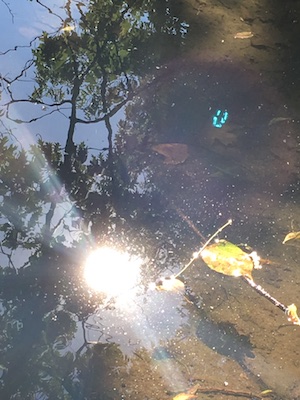 This returning of teshuvah, you see, is a complete invitational reset to your own mindset, ideally daily, so infections have less of a chance to ooze. What some regard as the most solemn day of the year for me is in fact the most joyful. On the Day of Atonement or at-One-ment, I thank the Divine that I am made to see that all the prayers between myself and my Creator can only be effective and sincere with my required commitment to notice my particular weaknesses of behaviour with my fellow man and to figure out how to turn it around into a more harmonious strength.
This returning of teshuvah, you see, is a complete invitational reset to your own mindset, ideally daily, so infections have less of a chance to ooze. What some regard as the most solemn day of the year for me is in fact the most joyful. On the Day of Atonement or at-One-ment, I thank the Divine that I am made to see that all the prayers between myself and my Creator can only be effective and sincere with my required commitment to notice my particular weaknesses of behaviour with my fellow man and to figure out how to turn it around into a more harmonious strength.
A process of teshuvah returns us to a more open heart and closer to as when we first came into this world. It keeps us away from being bogged in rote actions of approach and to become instead more richly aware of each other’s sensibilities. We become better aware to not damage our own connections. Over time, this practice helps us become appreciative that we can elevate a simple day into a beautiful spiritual act and we become more appreciative of what we have in front of us when we do.
My beautiful teacher, Master Ou, has always encouraged that we “make tea with our enemies”. When we choose to view our world through a different filter of how we can do things, we act accordingly and the world changes around us, too. More gifts and sweeter connections find us. When we can stay more open with a detachment and “understanding” to things, we are more apt to not get in the way that things can more richly and beautifully unfold. However, we must also each be patiently inspired to get there. When I do this work and you do, too, it is the only way our interactions and our tolerance of how things are in this world can move for the better. Will you join me?
 Photography by Marina Mashaal
Photography by Marina Mashaal

Wise words!